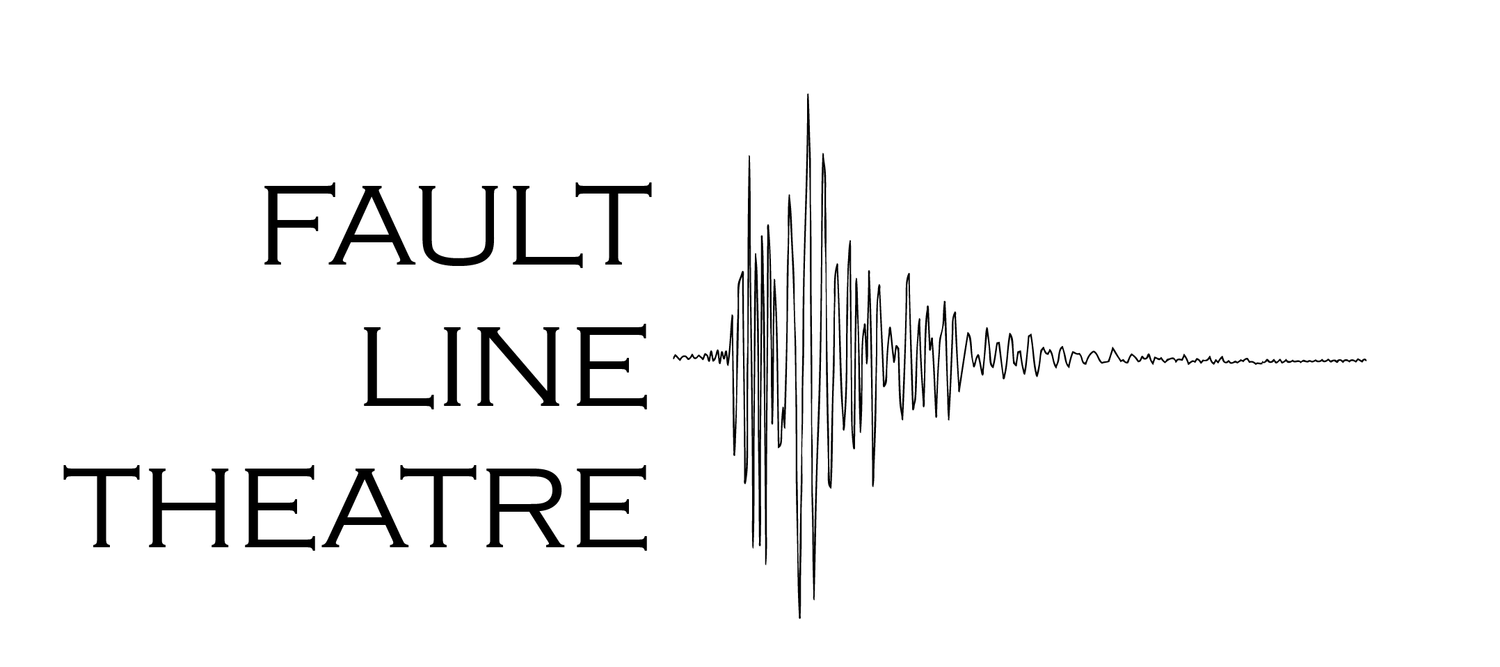Our dramaturg for Frogs, Brandt Adams, chatted with Lanie Zipoy of nearsay.com about translating Aristophanes from the ancient Greek and fart jokes.
On Frogs
By Lanie Zipoy
Fault Line Theatre, hailed as an “ambitious new troupe” by Show Business Magazine, opens its second season with the rapid fire hilarious production of Frogs November 4 through 19, 2011 at the Fourth Street Theatre in the East Village. Classic Greek playwright Aristophanes wrote characters that belong in the same breath as comedic titans Three Stooges, Mel Brooks and Looney Tunes, and Aaron Rossini directs a bold production that underscores these elements.
Brandt Adams, who serves as the production’s dramaturg, gives some insights into what to expect from the dynamic show and how Fault Line Theatre creates its work.
LZ: What excites you about the play Frogs by Aristophanes?
BA: Frogs is a great play that really asks the big questions about great plays: Why are they important? And how do they serve us best? As a theater artist, these are questions that I am constantly revisiting whenever I approach my work. Aristophanes was clearly reflecting deeply on them when he wrote it and it led him to produce a really thrilling piece of theatrical satire and criticism. It’s also funny as hell.
LZ: Fault Line Theatre company is dedicated to text work. Will you explain what that means, particularly for people who’ve never been in theater?
BA: I’ve never worked with a theater company that had such a deep appreciation for the words on the page. Fault Line really focuses on putting up the play the author has written, so they spend the first chunk of their process sitting around a table hashing out each individual moment. Even after they have started building the play on its feet, director Aaron [Rossini] makes it a point to remind the everyone, “The table never goes away!”, by which he means that if, at any time, the company feels lost or confused about the moment we’re trying to build, we can always go back to the words on the page. Using this approach the company is able to craft exceptionally clear moments that, once strung together, gel into clear and complex stories that are as close as possible to the author’s original intention.
LZ: How did you approach Frogs? What were some of the challenges?
BA: Frogs is deeply rooted in the historical moment in which Aristophanes wrote it, and it’s full of jokes, so the first thing I had to do was carefully pore over the text to figure out what each reference meant to a 5th Century BCE Athenian audience. It’s remarkable, really, how many of these jokes require little or no knowledge of the historical context, but many of them depended on word-play that is difficult to translate or direct references to 5th Century Athenian politicians, and so much of the table work was dedicated to figuring out how to translate that material in a way that was true to Aristophanes’ play but also resonant with our audience. Sometimes this meant tweaking a word. Sometimes it meant grabbing a whole speech from a different translation because it captured the idea more clearly. It was really incredible to watch the play transform during that first week, especially. The cast immediately took ownership of the script and went through tweaking it almost line by line to make sure the words and rhythms were just right.
LZ: What should audiences expect from this production that is different from the norm?
BA: Well, probably a dozen more fart jokes than you get in you standard Off-Broadway fare. But more importantly, I think people will be pleased to find a really sincere exploration of the nature and purpose of theater. The whole show, from the style of performance to the production design, really owns the meta-theatricality that Aristophanes wrote into it. Too many plays try to mask the fact that they are plays, and it’s such a waste of an opportunity—an opportunity to recognize and lift up the event that is actually happening, which is a group of people physically coming together to tell each other stories, and own all that potential that moment has! From the first moment ofFrogs to the last, it will be very clear to the audience that they are in a theater watching a play, and that’s sort of the point.

